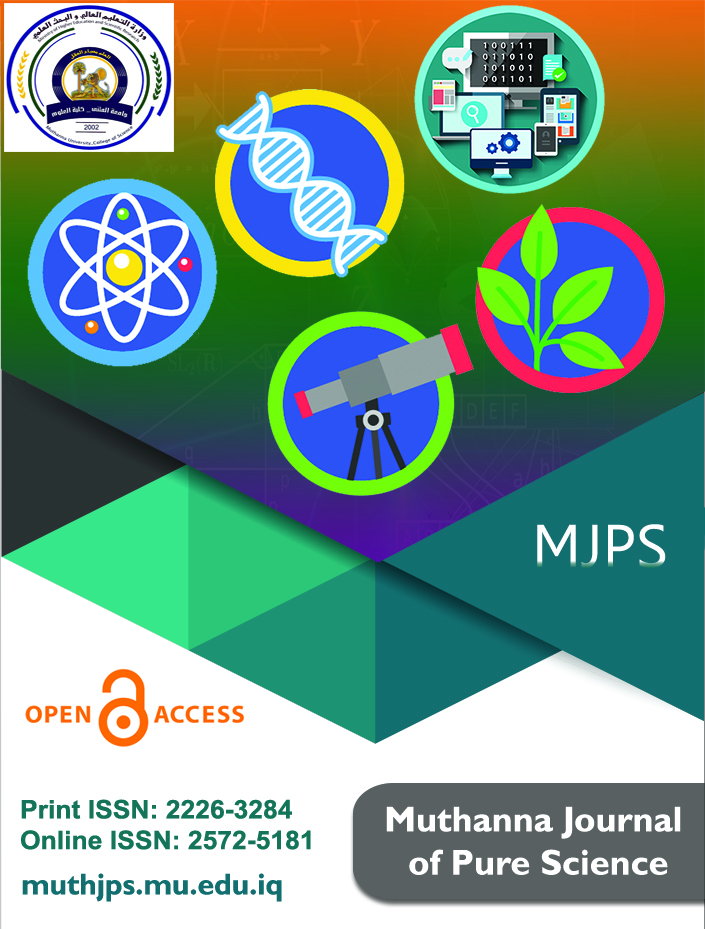Muthanna Journal of Pure Sciences – MJPS
VOL. 4 – NO. 2 / 2017
Laith Abdul Hassan Mohamed-Jawad1,*, Maha Sultan A. Al-Rubaie1
1Department of Biology, College of Science, University of Al-Muthanna, Al-Muthanna, Iraq .
Received: 9-4-2017 Accepted: 20-11-2017, Published: 31-12-2017
DOI: 10.52113/2/04.02.2017/1-7
Abstract
Abstract: Febrile seizure is a common convulsions occur in children from 5 months to 6 years of age whose suffering from high temperature. A total of 50 children with febrile seizures and 50 normal control are included in this study. RFLP used to identify the A/G polymorphisms of the SCN1A gene on chromosome 2q24. Results showed that the genotype proportions and allele frequencies for SCN1A c.3184 A/G in both groups are not significantly. Proportions of A homozygote, A/G heterozygote, and G homozygote for SCN1A c.3184 A/G were as follows: in patients with FSs, 20%, 50%, and 30%, respectively compared to controls (24%, 62%, and 14%, respectively). The allele A and G frequencies for SCN1A c.3184 A/G in patients with FSs was 45% and 55% respectively compared to control group. The frequency of AG genotype of SCN1A c.3184 A/G polymorphism was non-significant in FSs compared to control group. There was increased in glucose, phosphorus levels and decrease in sodium, chloride levels. The results do not suggest that SCN1A p. Thr 1067 Ala or c.3184A/G (rs2298771) are susceptibility factors for febrile seizures and the fever plays an important role in causing disturbances in electrolyte balance.
Keywords: Febrile seizures, SCN1A, Single nucleotide polymorphisms (SNPs), PCR-RFLP
Down load full article/PDF

